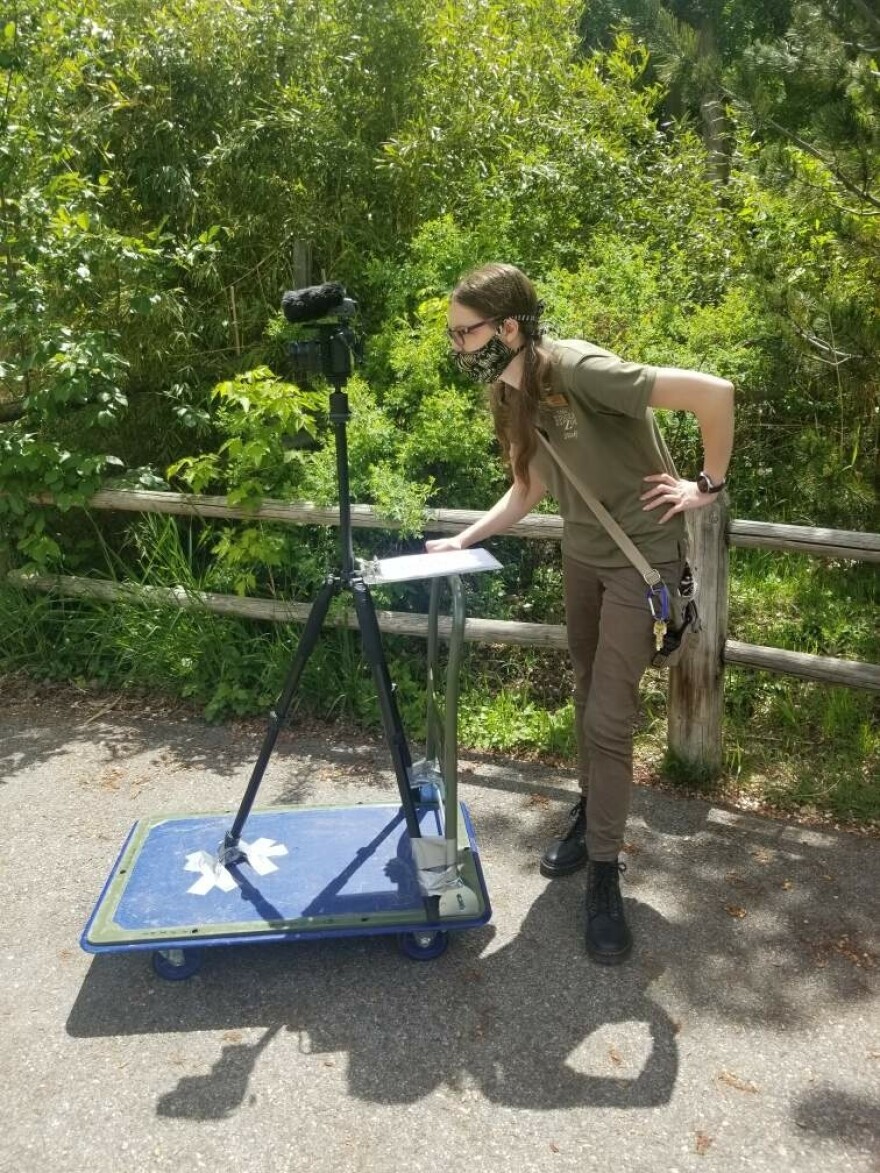Normally when the last bell of the school year rings, students race out of the classroom, throw away old assignments and get excited for summer plans. But the coronavirus pandemic has thrown a wrench in those plans, forcing families to reevaluate and make adjustments.
Jerry Rapier is the father to an only child, his 7-year-old son, Oscar. Rapier said he does not feel comfortable sending Oscar to camp. While he thinks it is important for his son to socialize, he said he worries more about his health.
“My child's life matters too much to me, not him being able to have fun in the summer but him actually being alive for that summer matters to me too much,” Rapier said.

But some parents have decided summer camp is okay, especially after their kids have had to learn online for the past three months. COVID-19 ended in-person classes in mid-March and pushed teaching online. That’s also limited children’s social interaction.
Michelle Todd, who has four kids ranging in age from 13 to 26, is sending her youngest son to camp this summer.
“I feel perfectly safe in sending him,” Todd said. “And to be honest, I'm actually more worried about his social emotional well being right now that I'm about the Coronavirus.”
She said it’s been difficult to find open camps, and some of the locations she normally sends her kids to are closed through July.
For those that are staying open all summer, like Camp Kostopulos in Emigration Canyon, they will be running things differently this year.

Camp K caters to children with disabilities, but children without disabilities can also attend the camp. Mircea Divricean, CEO of Camp K, said this year will not be a “regular camp.” Instead, groups will have less than 10 kids. Divricean said they will continue to operate as if the state is still in the red, high risk phase of the COVID-19 response throughout the summer.
Other camps decided not to reopen in-person and moved things online instead, like the Hogle Zoo.
Erica Ferguson worked at the zoo at the time of her interview but has since been let go amid zoo layoffs. She said they are following the guidelines laid out by the Centers for Disease Control and Prevention for daycares. She said those restrictions wouldn’t allow for the kind of in-person camp experience they want to give kids.
“When kids come to camp, they come to meet friends and have fun and play games,” Ferguson said. “If a part of that is that they can't be within six feet of each other and they can't share toys, it kind of takes away what camp is here.”
With in-person camp off the menu at the zoo, they’ve put together online programming kids can join through video conferencing apps.

For Rapier, he said he tries to limit Oscar’s screen time to three hours a week. He said an online summer camp just doesn’t meet his son’s social needs.
“He needs that experience of figuring things out on the playground and knowing how to navigate conflict, figuring out how to listen and share love,” Rapier said.
Liz Conradt, who teaches developmental psychology at the University of Utah, said that online camps likely are not as beneficial for young children.Conradt said young children learn best through interactions, and if they are going to be in front of the screen, it should be an active experience.
She said the pandemic could have a greater impact mentally on teenagers because their identities depend on interactions with their friends, which is why an online camp that offers any interaction between peers could be beneficial.
“If it's a camp that’s geared for their interests, it helps provide them with some sort of structure it could help with further fostering this peer group and these peer interactions,” Conradt said.

For parents who are not sending their kids to camp but they want to go, Conradt said they should validate that their child might be frustrated or angry. She said they should “come up with a plan with [their] child collaboratively” to figure out other things to do during the summer.
For Todd, she says her son will be camping in the mountains, which is socially distanced by nature and gives him some fresh air.
Rapier said he has a flexible work schedule, and he plans to spend the summer at home with Oscar. He said in an ideal world all parents would keep their kids home to make sure the school year resumes as normal in August.
Jessica Lowell is KUER’s news intern. Follow her on Twitter @Jess_Lowell.

